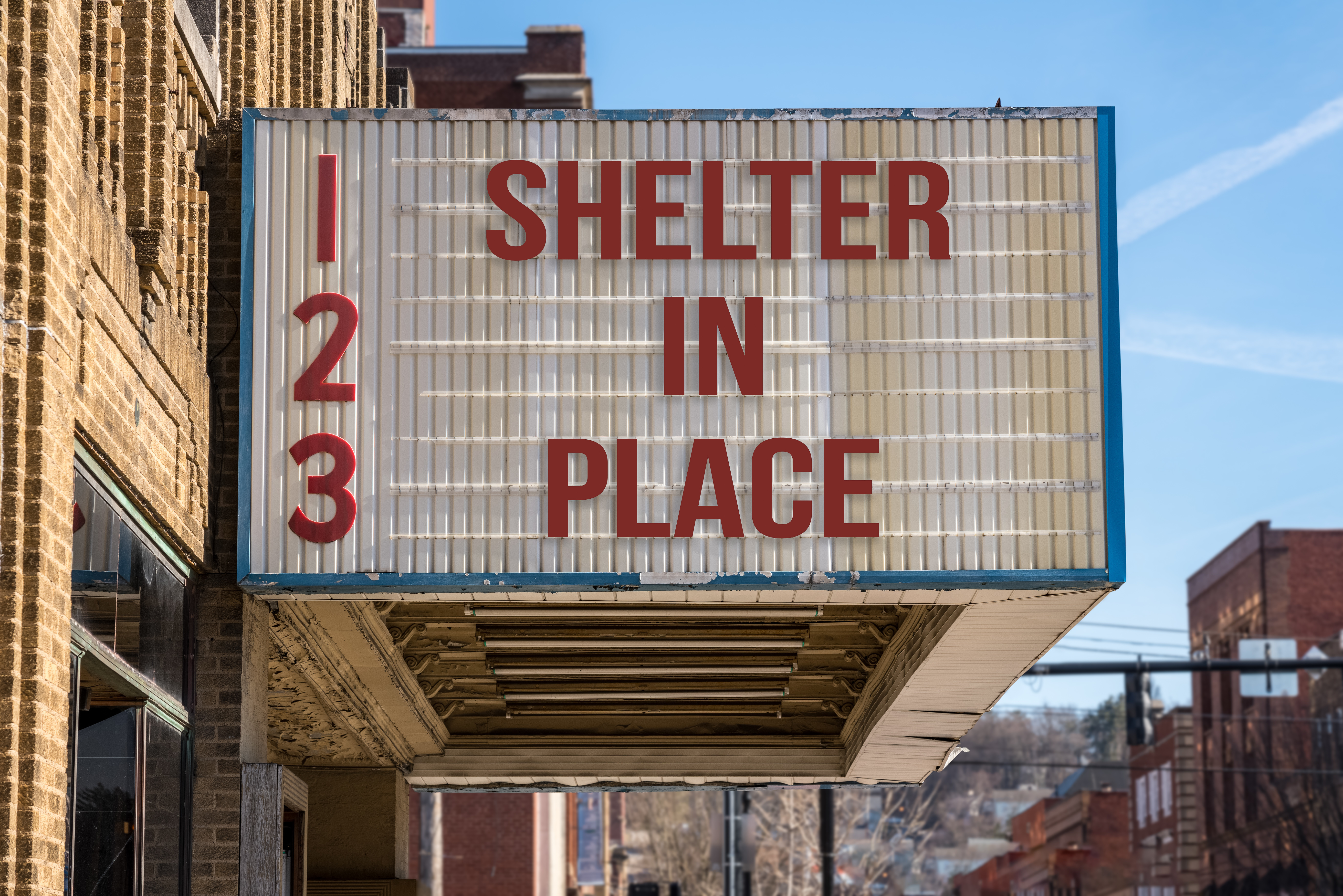For some of us, sheltering at home can be hard. Whether we are working remotely, feeling restricted, living alone, or teaching children home from school, we are asking ourselves to adapt and change our lifestyle. And for some people, change is synonymous with stress. We have a natural tendency to recoil when we’re told to “shelter-in-place”—either in a studio apartment or a house in suburbia. Perhaps it feels strange to be confined, to lose our freedom to roam. Perhaps it makes us feel a loss of control and trapped. It doesn’t matter why sheltering-in-place is stressful, what matters is how we think and react to our curtailed lives. Understanding this is critical if we are to remain mentally healthy during the course of this COVID-19 virus.
Think of this. During World War II, men who served on submarines were asked to endure a type of confinement that most would say is impossible. Up to 80 men were cramped into a space where bunks had to be shared, where temperatures and humidity could soar above 100 degrees, where the constant fear of depth charges would be an ever present strain on the whole crew, and where on a 75-day patrol, some of the men didn’t see daylight for weeks on end. The question is, how did they do it? How could they possibly have done it, patrol after patrol?
To me the answer is straightforward: following the bombing of Pearl Harbor, there was a fighting esprit de corps. We were attacked and we were at war. The horrible living conditions aboard a submarine were tolerable because there was a cause. A mission. The sailors demonstrated that extreme personal sacrifice can willfully be endured if the cause is embraced.
Back to shelter-in-place
Think about it for a minute. You are like one of those submarine sailors. You’re fighting an enemy virus and your “duty” is to serve the greater good. You too have a mission! Your mission, by agreeing to give up some of your liberty, is not to become an agent of transmitting this virus.
The best way to tolerate the “inconvenience” of being cooped up—of not getting haircuts or nails done, of skipping a vacation, of missing a life event—is to recognize that you matter! Your isolation matters! Your efforts matter! And if you’re inclined to whine, keep in mind that submarines didn’t have Internet, hot running water, TV, and a deck or patio to catch a breath of fresh air.
Rather than seeing all this as a burden, rather than feeling victimized, recognize and remind yourself that you and your sacrifice have meaning. You’re doing this for you, your family, your friends, and your country. Do this and you give meaning to why your life has been turned on its ear.
We humans do better when we are enlisted in a common cause, but up to now, most people haven’t understood that their personal role is an integral part of the fight. Sure, we may acknowledge this, but we don’t seem to be recognizing just how important our compliance is in order to take our lives back from this insidious threat. Clearly, this is a time for all of us to courageously fight-the-good-fight. Anything less would be cowardly.
So, batten down the hatches, brace for the weeks and months ahead, but do so with a sense of commitment, if not a sense of honor. You’re playing your part, so why not do it with perspective and why not endure some of the inconveniences imposed by sheltering-in-place with a broader shoulder?
The best way to cope is to reframe the “why” we’re told to restrict our lives. The why is clear, we are all enlisted in a common and shared battle. By giving meaning to your efforts, you’ll feel less victimized by the circumstances created by this virus.
Here are a few coping strategies to consider:
• Try to maintain a regular sleep/wake cycle that mimics your old routine. Try to get at least 8 hours of sleep.
• Limit exposure to news broadcasts. The unknown is frightening, you don’t need to fuel your imagination with constant “alerts.”
• Try to get more exercise, preferably outdoors. Exercise reduces stress, releases feel-good endorphins and helps to regulate your mood.
• Rather than focusing on what feels out of control, focus on what you can control, i.e., reaching out to others, reading, cooking, hobbies, etc.
• Take some mental breaks, actively calm yourself and your thoughts, try some deep “belly” breathing, progressive relaxation. Go to YouTube and type in “relaxation techniques.”
• If you’re a worrier and you’re unable to relax, check out my YouTube video: Self-Coaching’s ABC Technique to eliminate worry and anxiety.


